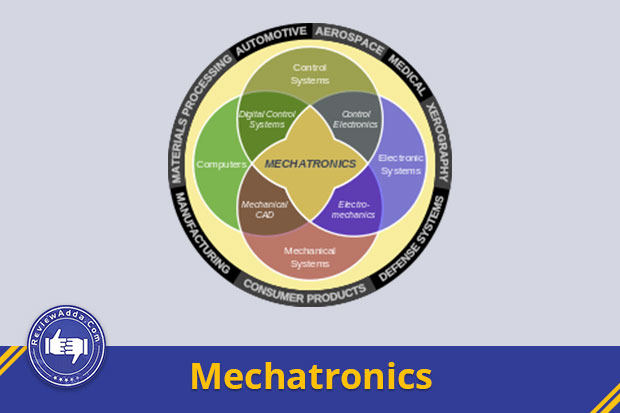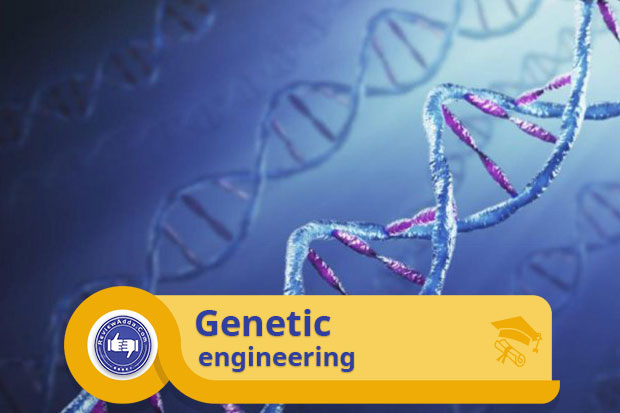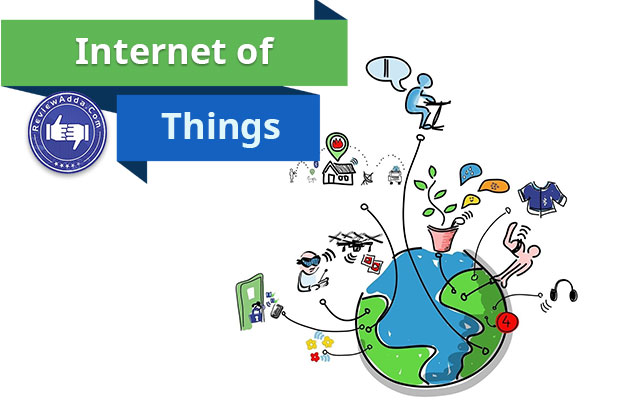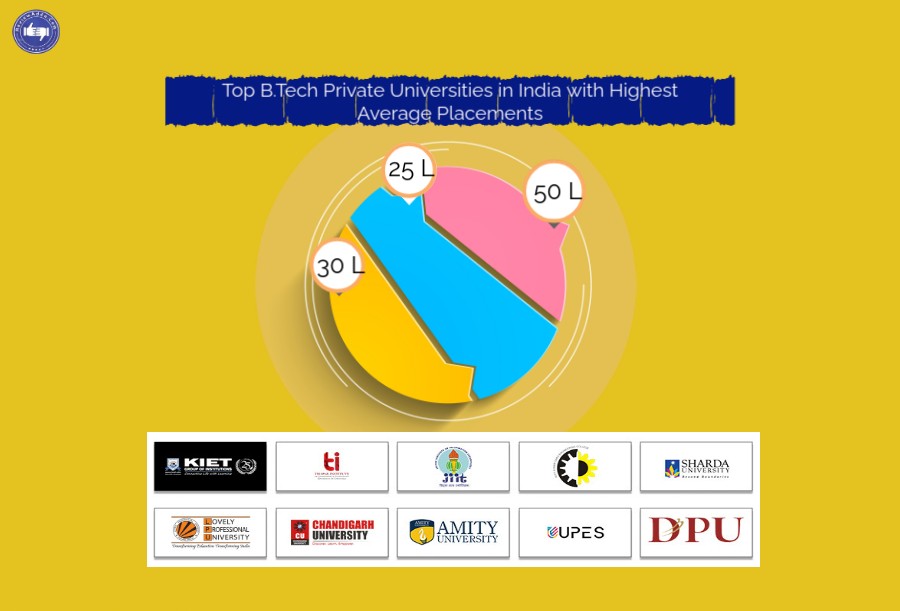Topic We Cover: New fields of engineering
1. Tech in Robotics
2. A few ways robotics has benefited the manufacturing sector are
- Mechatronics engineering
- Genetic Engineering
- Environmental Engineering
3. New fields of engineering: Conclusion
Disha, a 12th pass-out science student is mulling over taking a different approach to her Engineering Studies. She already has been accepted at a top-ranked engineering college in Chennai. Heading to the course counseling next week, she is torn between choosing a ‘safe’ branch like CS or a completely different avenue in mechatronics.
My father says CS is a safe branch, but which branch is ‘safe’ anymore?’ asks Disha. ‘My elder brother took admission in a good college four years ago taking CS as well. With the recent layoffs on the IT sector, his career is already in the doldrums. If an IT job is no longer guaranteed, why shouldn't I do something which I truly love?

New Fields of Engineering have become a necessity considering the rise of automation and robotics
It is hard to argue with Disha's premise. The fall of the IT sector has made many students apprehensive about future prospects in the once unstoppable field.
When asked how Mechatronics caught her eye, she said, Everything in engineering is now getting integrated. The automobile industry a decade ago didn’t foresee any partnership with tech companies. Yet you now see tech companies like Google investing billions of dollars into self-driven cars. So now you have amalgamation of automobile and tech industries to find solutions in machine learning and AI. Mechatronics represents the very essence of the spirit of integration
Every student chooses a career based on placements. Disha however doesn’t want to think about that. ‘I’m more interested in learning new things. For two years, I’ve been circling the same books and learning the same concepts repeatedly. Mechatronics will be a completely new challenge and I’m confident I’ll be fine after four years’
To see this kind of a spirit amongst our country’s future engineers is very satisfying. In the current scenario of our system, many students are more interested in taking the safe option over doing something they’re really interested in. However, with the new innovations taking shape, the industry is practically forcing students to develop niche skills or remain unemployed.
Responding to the growing clamor for new branches of engineering from students and industry experts alike, many colleges are introducing new fields of engineering to meet the standards of today’s jobs market.
The government colleges in the country such as IITs and NITs don’t have dedicated branches of engineering for subjects such as robotics, artificial intelligence and automation. However, the dynamic nature with which they evolve their curriculum educates the student about the advent of new innovations in a systemic and functional manner.
Other private colleges such as Amity, VIT and SRM are offering new fields of engineering in abundance. Some of these courses offered are discussed below in detail. Every aspirant thinking of pursuing these Types of engineering courses must understand is that there can be no half measures from their side.
1. Tech in Robotics
The inspiration may have come from movies, but robotics has become an indispensable part of the manufacturing industry. It is derived from old branches of engineering like mechanical, electrical and computer science. Robotics engineering deals with the design, construction, operation and maintenance of robots.
The essential role of any robot is to act as a substitute for a human. While the manufacturing industry is invested in robotics to replace humans for more specific purposes, the bulk of research in robotics is going into developing an all round robot capable of learning and functioning like a human. Many top companies in the world are focusing a major portion of their resources into research and development in the field of robotics.

Robotics is slated to be the biggest industries in the near future
The principal beneficiary of the advent of robotics has been the manufacturing sector. From being dependent on factors such as labor costs and efficiency, companies have found an incredible alternative in robotics.
A few ways robotics has benefited the manufacturing sector are:
- Creates efficiency throughout the process from material handling to product packaging
- Adapts seamlessly with different processes and can be programmed perform complex tasks
- Can be ingratiated in small-scale manufacturing units as well
- Can continue production in ‘lights-out’ time if continuous manufacturing is needed
Robotics originally took shape in colleges when IIT Kanpur first opened a robotics lab back in 1989. Colleges offering B.Tech in Robotics as a major in colleges are listed below along with their respective course fee.
| College | Fee (per year) |
| SRM University | Rs. 1,50,000 |
| IIIT Hyderabad | Rs. 44,000 |
| Dr. Radhakrishnan Institute of Technology | Rs. 70,000 |
| Mahatma Gandhi Institute of Technology | Rs. 82,500 |
| Bharath University | Rs.1,00,000 |
The scope for robotics is seemingly endless as there are an array of fields out their which are yet to integrate robotics into their operations. Only aspirants truly committed to learning about this field should think of choosing robotics as engineering major.
2. Mechatronics engineering
The confusion between mechatronics and robotics is palpable amongst students during counseling every year. The essential thing to remember is while robotics is a very diverse field; it is essentially a subset of mechatronics.
Mechanical engineering, electronics and computer science engineering combining to build coherent modern systems based on properties from these fields is mechatronics. While all robots are mechatronics systems, all mechatronic systems are not robots.
The main focus of mechatronic engineers in recent years has been concentrated on the manufacturing sector. As companies are slowly turning to automated machines for production of complex machine parts, mechatronics has become an essential part of any normal assembly line at a major manufacturing unit.

Mechatronics represents an amalgamation of many different traditional fields of engineering
A few reasons why students should prefer mechatronics as engineering major are:
Versatile in different fields
Combining the concepts of three major branches of engineering is no fool’s work. Mechatronics engineers are famed for their versatility in understanding complex problems from each of these fields. From doing hands on work in the mechanical aspect, working on circuit wiring to coding the operation onto the circuit board, mechatronic engineers essentially become adept at handling all parts of an operation.
 Get Updated Review ( Voice Based Alumni Feeback)
Get Updated Review ( Voice Based Alumni Feeback)
-
 Check Review (Alumni Feedback) - Lovely Professional University - [LPU] – Click Here
Check Review (Alumni Feedback) - Lovely Professional University - [LPU] – Click Here -
 Check Review (Alumni Feedback) - Amity University – Click Here
Check Review (Alumni Feedback) - Amity University – Click Here -
 Check Review (Alumni Feedback) - Pacific University – Click Here
Check Review (Alumni Feedback) - Pacific University – Click Here -
 Check Review (Alumni Feedback) - SRM University Sonipat – Click Here
Check Review (Alumni Feedback) - SRM University Sonipat – Click Here -
 Check Review (Alumni Feedback) - Ansal University – Click Here
Check Review (Alumni Feedback) - Ansal University – Click Here
Knowledge of Robotics
As mentioned before, all of robotics is based on the study of mechatronic systems. Mechatronic engineers are well adept at understanding the working, operation and maintenance of robots. With automation primed to become a major sector over the next few years, mechatronics professionals will have a huge say in the next jobs revolution in India
Potential for growth
As mentioned before, we are already seeing the impact automation had in the stopping of the IT juggernaut in India. If colleges in India embrace mechatronics and impart quality training to students, we could see yet another revolution in the Indian jobs sector.
3. Genetic Engineering
Genetics represent the very fingerprint of human presence in the universe. The concept of genetic engineering is a field based on the modification of genes. This modification is done through biotechnology, a system which uses living organisms to create or alter products.

Genetic engineering strives to find solutions in the field of agriculture and medicine by DNA alteration
Genetic Engineering in India has faced controversy at times due to protests surrounding genetically modified (GM) crops. Despite these hiccups, genetic engineering is slated to be the future of agricultural technology. While most nations still depend on factors like a good monsoon for the growth of the economy, new fields of engineering like genetics eliminates these factors by changing the fundamental characteristics of crops by genetic manipulation.
Besides the agro-business, genetic engineering has been crucial for the explosive growth of pharmaceutical companies. New diseases are becoming a trend over every passing year, increasing the importance of genetic engineers to come up with cures in due time.
The job profile of a typical genetic engineer is described below:
- Being aware of future prospects in genetics
- Conducting laboratory research on the genetics of living organisms in the prescribed manner
- Assessing environmental conditions such as temperature, heat, pressure and moisture before conducting studies on living organisms
- Being up-to-date with new methods and strides in genetics by reading journals and published papers and attending seminars
Environmental Engineering
Using existing scientific and engineering ideas to protect the environment from disruptive elements is environmental engineering.
The reality of global warming and climate change is facing mankind right in the face. While we are moving forward in all areas of science and technology, we are systematically forgetting the damage being caused to the environment in the process.
Environmental engineering seeks to close the gap between the demand for growth and the protection of environment by finding solutions mutually beneficial to both problems. From being an ‘on-field’ engineer making sure processes are happening in the most eco-friendly way possible to working ‘in-house’ to reduce the carbon footprint of a given shopfloor. Many major corporations in the world are now employing environmental engineers to become more energy efficient and make their contribution to protecting the environment.
The job description of a typical environmental engineer is given below
- Study, make and modify environmental investigation reports
- Design projects which incorporate eco-friendly measures such as pollution monitoring systems, water reclamation facilities and efficient energy distribution systems
- Provide guidance to environment rehabilitation projects
- Analyze industrial and municipal implementation of environmental measures to asses compliance on the ground level
- Counsel major corporations and governments on matters regarding the environment
B.Tech in Internet of Things (IoT)
The Internet of Things has opened a world of opportunities for AI and mechatronic systems. IoT is being called by many experts in the field, ‘The final piece in the puzzle’ as far as Artificial Intelligence is concerned.
IoT is essentially the integration of internet across all electronic and electrical platforms. From refrigerators and toasters to cars and airplanes, IoT is a concept with far-reaching applications and consequences.
The one aspect of IoT people remain apprehensive about is security. IoT entails integration of practically every discernable device with the internet. If this is accomplished successfully, internet security will have to become impregnable, otherwise this concept will fade into redundancy.

Internet of Things is considered as the last piece in the puzzle in the race to build the perfect AI
Some of the features of a B.Tech course in IoT are:
- Understanding the channels of communication between the tangible world and the internet
- Future areas of growth linked with the emergence of IoT
- Learning extraction of information from devices for enhancing solutions in the business world
- Understanding tools and techniques to be incorporated into devices to tackle daily problems.
New fields of engineering: Conclusion
The unique factor across all the fields mentioned above is integration. Mechanical and electronics combined for robotics, biology and Computer science engineering combined for genetics and practically everything combines for IoT.
The importance of an integrated approach is incalculable. Synergy between different technologies is being used to solve problems more efficiently and rigorously than ever before.
We are slowly entering a stage where integrated technologies will become routine to most consumers. To meet the overwhelming demand for improvement in design, operation, maintenance and efficiency, engineering has to rise as a field to move consumers into a new era of technology.
The fields mentioned above do not represent all the fields which are on the threshold of popularity. Fields like biotech, instrumentation and energy engineering also represent new areas of innovation. However, the fields mentioned before represent the core group of new technologies which need just a little push to gain maturity.



.jpg)


